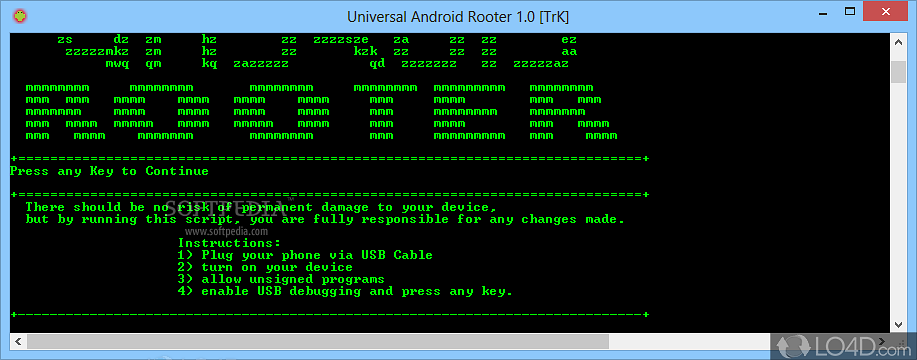
Their manufacturers provide no official way to unlock their bootloaders and tamper with their software. Exploit a Security Vulnerability: Other devices are locked down.Other manufacturers also offer ways to unlock the bootloader, but only for certain devices. Tools like the Nexus Root Toolkit for Nexus devices automate this process.

zip file containing the su binary from the recovery screen. You can then root your device by flashing a.

For example, Nexus devices are intended for developers, and you can easily unlock the bootloader with a single command.
Unlock the Bootloader: Google and device manufacturers don’t officially support rooting, but they do provide an official way to gain low-level access to some devices, which then allows you to root. There are many ways to root an Android phone, and which one you should use depends on your phone. In general, rooting will involve one of these processes: RELATED: The Case Against Root: Why Android Devices Don't Come Rooted The Many Ways to Root an Android Phone 
Check out our explainer on the subject for more information. In addition, rooting may void your warranty, at least for certain types of repairs. If you’re worried, do a bit of research first and see if other people report success rooting your device with the tool you’re planning on using. If you mess something up, you can’t just expect free warranty service to fix it. Rooting should generally be a very safe process, but you’re on your own here.
Bricking: As usual, you do this at your own risk. In many cases, you can “unroot” your device and manufacturers won’t be able to tell if it’s been rooted. However, rooting will not actually damage your hardware.  Warranty: Some manufacturers assert that rooting voids your device’s warranty. In fact, Google prevents you from using Android Pay on rooted devices for this reason. Apps could abuse root privileges you’ve granted and snoop on other apps, something which isn’t normally possible. Security: Rooting breaks apps out of Android’s normal security sandbox. In fact, some device manufacturers go out of their way to prevent you from rooting. WarningsĪndroid devices don’t come rooted for a reason. If you don’t plan on actually doing anything with that root access, don’t bother. You can always root it later if you need to. You only need to root your phone if you want to run a specific app that requires root access.
Warranty: Some manufacturers assert that rooting voids your device’s warranty. In fact, Google prevents you from using Android Pay on rooted devices for this reason. Apps could abuse root privileges you’ve granted and snoop on other apps, something which isn’t normally possible. Security: Rooting breaks apps out of Android’s normal security sandbox. In fact, some device manufacturers go out of their way to prevent you from rooting. WarningsĪndroid devices don’t come rooted for a reason. If you don’t plan on actually doing anything with that root access, don’t bother. You can always root it later if you need to. You only need to root your phone if you want to run a specific app that requires root access.







 0 kommentar(er)
0 kommentar(er)
